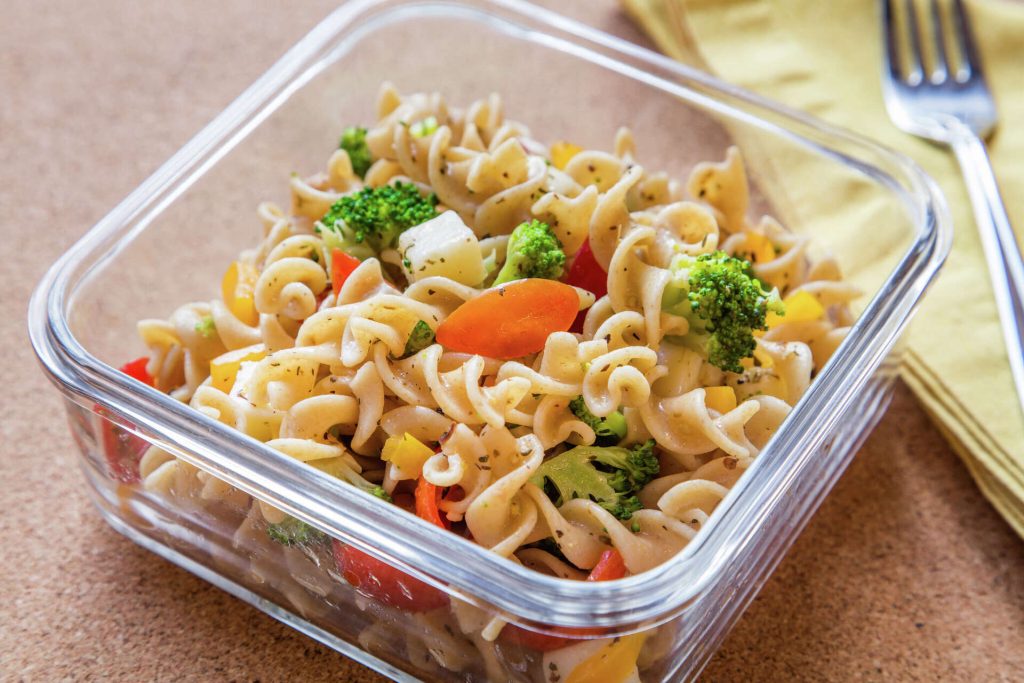A recent outbreak of Listeriosis, caused by the bacteria Listeria monocytogenes, has been linked to ready-to-eat pasta meals sold across the United States. As of the end of October 2025, federal health agencies confirm that six people have died and 27 have become ill across 18 states.
Among those sickened, 25 required hospitalization, and one case involved a pregnancy-associated illness that resulted in fetal loss.
Products and Retailers Affected
The contaminated meals in question were sold by major grocery chains and included items like pasta salads, fettuccine alfredo trays, and linguine with meatballs.
The implicated products were linked back to Nate’s Fine Foods, Inc., a supplier that provided pre-cooked pasta (including fettucine, linguine, and farfalle shapes) used by other companies.
Some specific recall examples:
- A pasta salad sold at one chain with “use-by” dates from October 10–29, 2025.
- Individual deli pasta-salad lots sold between late August and early October 2025.
- A tray meal style product with “best if used by” dates in 2025 and even March 2027.

High-Risk Groups and Health Concerns
Listeria infections pose particular danger for certain populations. Individuals who are 65 or older, pregnant, or have weakened immune systems are at elevated risk of severe complications.
In these groups, the infection can spread beyond the gut, affecting the nervous system and potentially causing life-threatening conditions, miscarriages, or death. Symptoms tend to include headache, muscle aches, fever, diarrhea, stiff neck, confusion, and loss of balance — and they can start within days but may also appear up to 10 weeks after exposure.
Response and Recall Actions
In light of the outbreak, the U.S. Food & Drug Administration (FDA), the Centers for Disease Control and Prevention (CDC), and the United States Department of Agriculture Food Safety and Inspection Service (USDA FSIS) have collaborated with manufacturers and retailers to issue product recalls and public alerts.
For example, the supplier Nate’s Fine Foods expanded its recall on September 30, 2025, to include multiple lots of pre-cooked pastas.
U.S. Food and Drug Administration
Consumers are being urged to check their refrigerators and freezers for recalled items, discard them or return for a refund, and clean any surfaces that may have come into contact with the contaminated food.
What Consumers Should Do
If you have purchased prepared pasta meals or pasta salads from major supermarkets, especially with the affected brand information or “use by” dates in 2025, you should:
- Check your purchase and pantry for the specific recalled lot numbers or dates.
- Ask your retailer or visit their website for recall lists and guidance.
- Discard or return any items you suspect are part of the recall — do not eat them.
- Thoroughly clean surfaces, containers and refrigerators that stored the recalled items, as the bacteria can survive and spread.
- If you are pregnant, elderly, have a weakened immune system, or care for someone in one of those groups, seek medical attention if you experience symptoms such as fever, muscle aches, diarrhea or confusion after eating a potentially contaminated product.

Broader Implications
This outbreak raises concerns about food-safety practices in prepared and ready-to-eat meals, particularly when ingredients cross-contaminate or inspections miss early signs of contamination. The fact that the illness spread across 18 states and affected major national retailers highlights vulnerabilities in food-supply chains. The investigation is ongoing, and health officials warn that the actual number of sick people could be higher due to underreporting

















